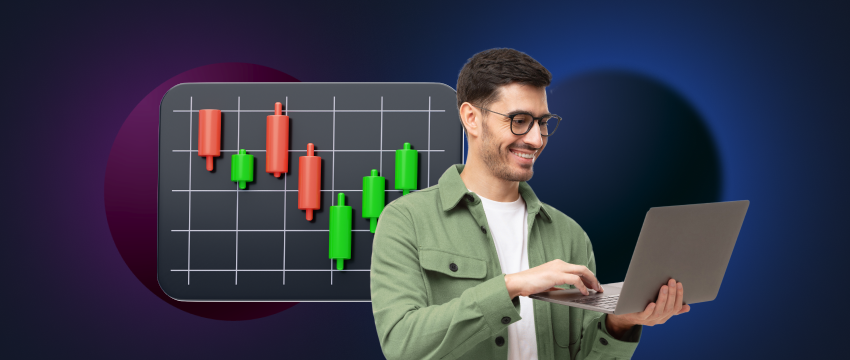Forex trading can be enticing for professional forex traders due to the potential financial gains it offers. However, it is certainly not without risk, as it is a highly volatile activity that incurs significant losses.
The opportunity for professional forex traders to make a profit exists. However, earning potential can vary significantly. This variation depends on different factors.
How does one define a professional forex trader?
So, what makes for a professional forex trader in the first place? A professional forex trader engages in currency trading as a career. This trading often serves as their main income source.
They are labeled professional because of their expertise. They also have a strong understanding of risk management. Additionally, they deploy complex strategies. Access to larger amounts of capital is common among them.

What influences a trader’s potential gains?
There are many factors that play a role in the success of a particular trade.
Budget and leverage for professional forex traders
For one, the trader’s budget will certainly impact their overall income. The amount of capital the trader has to invest in a specific position, combined with their use of leverage, ultimately influences their risk exposure and possible returns.
A larger sum of capital allows traders to take on bigger positions, which can amplify both profits and losses. Adversely, a smaller budget may limit opportunities for significant gains and necessitate more conservative strategies.
Effective risk management
A professional forex trader values effective risk management. They have a robust understanding of it. This knowledge helps protect their capital. This is because professional forex traders understand the importance of not blowing all their funds on a single bad position.
Instead, they either follow the principle of committing just 1-3% of their budget on any given trade, or they ensure they have stop-loss orders or take-profit orders in place to limit losses and lock in profits.
Professional forex traders understand the market
Third, another challenge impacting how much a professional forex trader makes is market volatility.
The forex market is influenced by many different factors, such as geopolitical uncertainties, economic announcements, environmental disasters, interest rates, inflation rates, GDP, etc.
In the face of unanticipated market moving events like these, even the most professional trader can lose money, no matter how experienced they are.
This is why being prepared for such volatilities is paramount. This includes remaining focused, being disciplined and consistent, and relying on one’s trading plan rather than feelings or kneejerk reactions.

Trading strategy
Fourth, a professional forex trader’s gains also significantly depend on the type of trading strategy they adopt. Every strategy comes with its own set of risks based on volatility, liquidity, and price movements.
Scalpers for instance seeks to make small gains multiple times a day. Swing traders on the other hand hold onto positions for several days or week, aiming for longer term profits.
While both strategies have the potential to be profitable, income may vary based on market conditions, the trader’s expertise, and the risk management tools they have in place. Choosing the right approach requires a thorough understanding of both market behaviour and personal risk tolerance.
Trading Psychology for professional forex traders
Fifth, regardless of how experienced a forex trader is, if they can’t keep their emotions in check, the risk of massive loss is high. Trading psychology refers to the influence that feelings have on trading behaviours.
Some of the most common feelings driving trading decisions include fear, greed, overconfidence, and even FOMO. The problem with these emotions is that unless you’re able to manage them properly, you’re likely to engage in reckless decision making process, leading to adverse trading outcomes.
Professional forex traders will be mindful of the impact that their feelings have and will instead, strive to execute trades based on objective data rather than impulsion.
Some of the ways that trading psychology can be improved include:
- Engaging in some form of mindfulness practices
- Undertaking physical exercise to keep the mind and body fit and alert
- Eating a healthy, well-balanced diet to think more clearly
- Stepping away from your computer screen for a several minutes to hours to destress.
Professional forex traders will incorporate one or more of these tools to ensure they maintain emotional balance, stay focused, and make rational decisions during trading.
Level of experience and education
Sixth, a professional forex trader is likely to have built up their expertise over several years, increasing their potential for successful trading outcomes in comparison to someone just beginning their trading journey.
How traders boost their skills varies from person to person but there is a certainly an almost infinite source of information online, one just needs to know where to find it and whether it’s credible.
Educational resources
Reputable brokers like T4Trade work to provide their traders with educational resources, including:
- Forex webinars for useful trading insights delivered by experts.
- Forex podcasts to improve your trading knowledge and enhance your skills.
- Videos-on-demand for useful trading tips, exclusive market insights, and daily market commentary for both beginner and seasoned traders.
- eBooks with expert trading tips and educational guidance to boost the trading experience.
- Live TV for live discussions and trading insights from expert analysts.
Trading tools
In addition to these resources, T4Trade also offers access to a variety of helpful trading tools to compliment the learning process. This includes an 경제 캘린더 (to monitor key releases and economic indicators) and trading calculators.
Traders can also make use of Trading Central, which offers leading tools for advanced market analysis and ideas like dynamic chart patterns, automated AI analytics, up to 10 trade ideas, technical indicators, and more.
Demo trading account
More than just using the aforesaid tools or trading related educational resources, another way that professional traders seek to become more strategic to increase their potential for maximising gains is by using a demo trading account.
A demo account offers a trader a simulated trading environment in which they can deploy trading strategies of any complexity and gage outcomes.
Traders can open and close positions using virtual funds, without ever putting their own capital at risk. The demo account also mimics real-life market conditions and allows the trader to become more well-versed in technical 택하고 fundamental analysis.
Trading plan
Finally, a professional forex trader’s potential success may be dependent on their trading plan and the extent to which they stick to it.
An effective trading plan is one that specifies the trader’s goals, the rules by which they will trade (entry and exit points), the amount of capital they’re willing to risk losing, and the risk management techniques they intend on deploying.
Sticking to the plan typically sees the trader being more consistent, not falling prey to their feelings.

Trading with T4Trade
T4Trade is a popular global broker with clients worldwide. The forex broker offers top-tier, 24/5 multilingual customer support, cutting-edge trading platforms, and flexible trading conditions.
T4Trade is also a great go-to resource for traders looking to learn more about forex trading in a user-friendly way.
A variety of videos, podcasts, eBooks, webinars, and videos-on-demand are curated by in-house specialists, catering to all types of traders.
T4Trade traders can also choose from a wide range of trading instruments across 6 asset classes, and enjoy flexible leverage, competitive spreads, fast trade execution and seamless deposit and withdrawal options.
Traders can also choose from multiple trading accounts that best suit their needs and individual preferences.
Disclaimer: This material is for general informational and educational purposes only and should not be considered investment advice or an investment recommendation. T4Trade is not responsible for any data provided by third parties referenced or hyperlinked in this communication.



